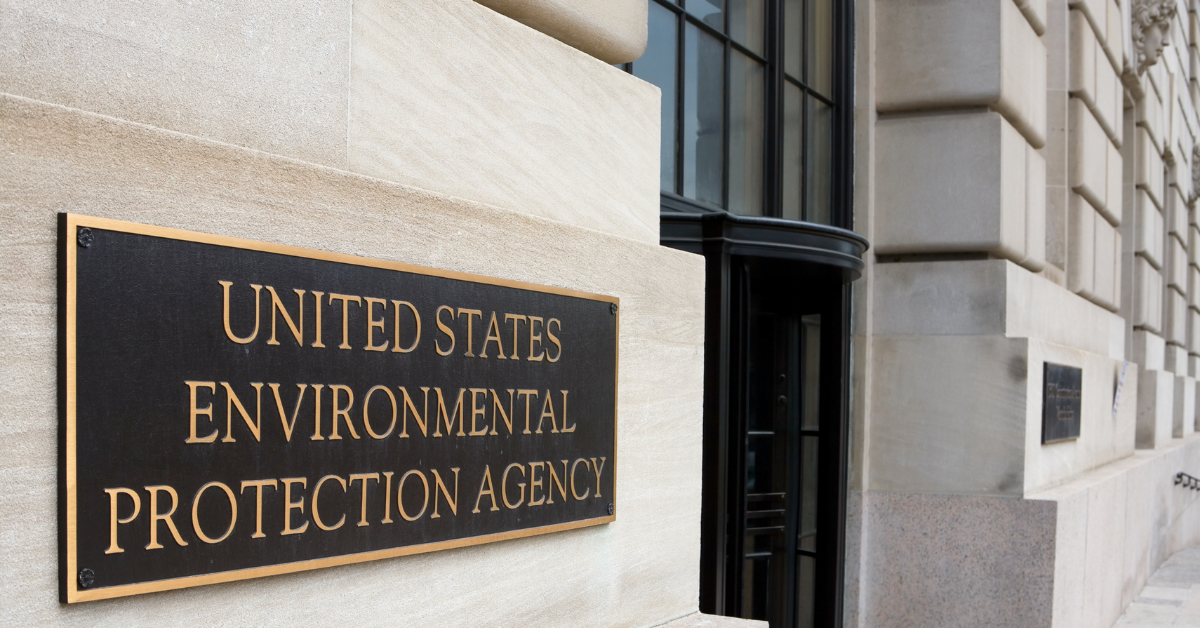The old question goes: If a tree falls in a forest and no one is around to hear it, does it make a sound? Likewise, if the federal government stops tracking greenhouse gas emissions, does the pollution cease to exist?
On September 12, Lee Zeldin, administrator of the Environmental Protection Agency (EPA), announced a proposal to end the Greenhouse Gas Reporting Program (GHGRP). This rollback reflects the Trump administration’s broader efforts to weaken the legal authority for climate protections and push for deregulation of industries responsible for the bulk of U.S. greenhouse gas emissions.
The GHGRP, created under a data-collection mandate signed by President George W. Bush, requires more than 8,000 facilities and suppliers under certain categories to report annually under defined thresholds. If finalized, the EPA’s proposal would eliminate reporting requirements for nearly all source categories, including many large facilities, most fuel and industrial gas suppliers, and CO2 injection sites. The obligation would only remain for those subject to the Waste Emissions Charge, which was established by the Inflation Reduction Act to tax methane emissions from oil and gas. But The One Big Beautiful Bill Act amended the law that formed the basis of this act, so now the tax only applies to emissions reported for calendar year 2034 and later—meaning no federal reporting is necessary until then.
In a press release, Zeldin framed the rollback as an economic win, calling the GHGRP “bureaucratic red tape that does nothing to improve air quality.”
Experts disagree. Without accurate emissions data, policymakers and scientists lose a key tool to craft climate solutions. “You can’t manage what you can’t measure,” says Chelsea Chandler, Clean Wisconsin’s Climate, Energy & Air Program Director. “Being able to understand where greenhouse gases are being emitted is essential to craft solutions that are going to address those problems. It’s important for our knowledge—designing policy, voluntary action, and other mechanisms that address the source of the problem… The EPA must collect accurate, consistent data and provide that information to the public so that we can act on it.”
Wisconsin has its own reporting rules, but at higher thresholds for reporting than the GHGRP, meaning that not as many polluters need to report at the state level. For example, the Wisconsin Department of Natural Resources requires state emissions-inventory reporting for CO2 at 100,000 short tons per year, while the federal GHGRP generally kicks in at 25,000 metric tons (about 27,500 short tons) CO2 annually. If the EPA rollback proceeds, facilities in Wisconsin emitting between 27,500 and 100,000 short tons—significant sources—would no longer be required to report their emissions.
Underreporting is expected to exacerbate projected climate impacts. The Wisconsin Initiative on Climate Change Impacts warns that unchecked emissions threaten recreation like fishing and snow sports, forests vulnerable to wildfire, and public health due to increased particulate pollution, which drives chronic diseases.
“You don’t just want industry regulating themselves in any case. We have to demand accountability, because big industry is not always incentivized to reduce their emissions—they can make more money by dumping the costs onto someone else,” says Chandler.
Paul Mathewson, Clean Wisconsin’s Science Program Director, notes that public pressure alone is not enough. “With a lack of public accountability, there’s a risk for increased emissions. If no one’s asking for it or knows about it, why bother trying to reduce them if it will be cheaper without?”
He adds, “When there are knowledge gaps, and when opponents can say ‘Hey, but you can’t prove this’, or ‘we don’t know this’, it just opens new opportunities to push back against efforts to reduce greenhouse gas emissions. That’s the whole point of these rollbacks—if we don’t have any information to point to, we can’t hold anyone accountable.”
Wisconsin residents are not powerless. They can push back by voicing opposition—to the EPA directly, to elected officials, and to congressional representatives. As a politically important state, Wisconsin’s leverage is critical in defending climate accountability.

